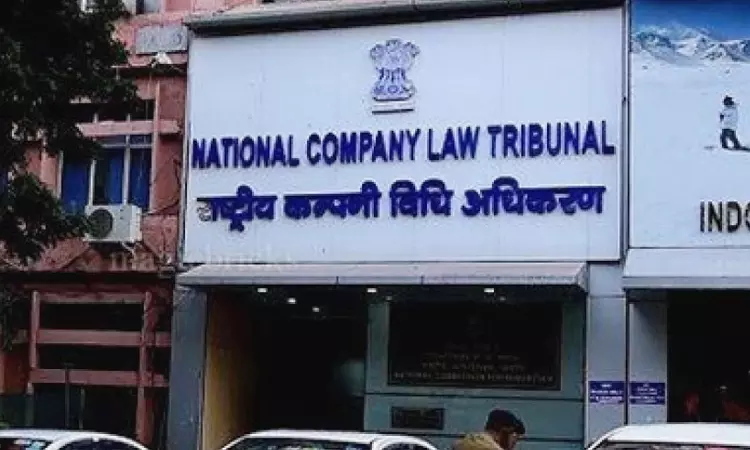Defaults Occurring Out Of Settlement Agreements Are Not “Operational Debts” U/S 5(21) Of IBC: NCLT Delhi
Live Law News Network
23 April 2025 4:10 PM IST
The National Company Law Tribunal (NCLT), New Delhi bench of Shri Manni Sankariah Shanmuga Sundaram (Judicial Member) and Dr. Sanjeev Ranjan (Technical Member), rejected a section 9 Petition filed by the operational creditor under the Insolvency & Bankruptcy Code, 2016 (the code), holding that Default occurring out of settlement agreements are not “operational debts” under...
The National Company Law Tribunal (NCLT), New Delhi bench of Shri Manni Sankariah Shanmuga Sundaram (Judicial Member) and Dr. Sanjeev Ranjan (Technical Member), rejected a section 9 Petition filed by the operational creditor under the Insolvency & Bankruptcy Code, 2016 (the code), holding that Default occurring out of settlement agreements are not “operational debts” under Section 5(21) of the Code.
Background:
M/s. Harji Engineering Works Pvt. Ltd. (“Operational Creditor”) is engaged in the business of providing engineering construction services in different projects. On the other hand, M/s Enerture Technologies Private Limited (“Corporate Debtor”) provides service for solar installations and the services related to it.
The Operational Creditor and Corporate Debtor entered into a Memorandum of Understanding (MOU) on 23.01.2024 for setting up a 100 megawatts solar power generation facility on pan India basis including its operation and maintenance for 3 years.
During the course of business, several disputes occurred between parties Pertaining to which the parties decided to enter into a Second MOU dated 01.06.2024 for settlement of the disputes.
As per the MOU, the parties mutually agreed that the Corporate Debtor has to pay an amount of Rs.5,00,00,000/- to the Operational Creditor within 4 months from the date of signing of the second MOU , i.e., 01.06.2024.
In compliance for the same two post-dated cheques were submitted by the corporate debtor as per the agreed terms of the MOU, however both of these cheques got dishonoured. The Corporate debtor thereafter submitted two more cheques on 19.11.2024, which also got dishonoured.
The Operational Creditor, issued legal notice dated 23.11.2024 to the Corporate Debtor under section 138 Negotiable Instruments Act as the cheques submitted by it got dishonoured.
Further, it also issued a demand notice to the Corporate Debtor on the same date under Section 8 of the code for the unpaid amount. Thereafter, as the Corporate Debtor did not reply to the demand notice, Section 9 petition was filed by the Operational Creditor for initiation of insolvency proceedings against the Corporate Debtor.
Findings:
The Tribunal remarked that for an Insolvency Petition to be filed under Section 9 of the code by the Operational Creditor there has to be an existence of Operational Debt.
The tribunal further noted that an operational debt as defined under Section 5(21) of the code is a claim in respect of:
- provision of goods
- provision of services including employment or
- A debt arising under any statute and payable to government/local authority
It remarked that as the claim filed by the Operational Creditor does not fall under any of the above given conditions, it cannot be termed as Operational Debt.
The NCLT Indore in Permali Wallace Pvt. Ltd. vs Narbada Forest Industries Pvt. Ltd held that an amount arising out of some settlement agreement cannot be termed as operational debt within the meaning of Section 5(21) of the IBC, 2016.”
Therefore, the tribunal noted that default arising out of a settlement agreement or MOU cannot be categorised as Operational Debt as per section 5(21) of the code and the application cannot be admitted.
The tribunal further observed that there were certain disputes that existed between the parties even before the application u/s 9 was filed. The disputes were regarding allocation of work along with profit-sharing ratio between the parties. It was to settle these issues the parties entered into second MOU on 01.06.2024.
The National Company Law Appellate Tribunal (“NCLAT”) in M/s. Sumilon Polyester Private Limited vs M/s. Parikh Packaging Private Limited held that any established dispute between the parties can be a ground for rejection of an application under Section 9 of the Code.
Further, the NCLAT in Mr. Umesh Saraf vs Tech India Engineers Private Limited held that exchange of correspondences or legal notices as well as filing of complaints, establishes that a pre-existing dispute between the parties involved.
Hence as the claim filed by the Operational Creditor is not an Operational Debt and there is a pre-existing dispute between the parties, the Tribunal rejected the Section 9 petition filed by the Operational Creditor.
Case Title: Harji Engineering Works Pvt. Ltd. V/s M/s Enerture Technlogies Pvt. Ltd.
Case Number: CP (IB) No. 63 (ND)/ 2025
Judgement Date: 17.04.2025
For Applicant: Mr. Sahil Garg, Ms. Samiksha Jain, Advocates



